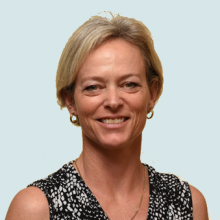
Open Data Science Platform (eLwazi ODSP)

eLwazi ODSP

1U2CEB032224-01

The Open Data Science Platform (ODSP) and Coordinating Center (CC) for DS-I Africa is led by a well-established partnership between Prof Mulder (current PI H3ABioNet) and Dr Michelle Skelton (current Coordinator, H3Africa CC) hosted within the Computational Biology Division and IDM at the University of Cape Town (UCT). Using 8 years of experience in leading a pan African informatics consortium aimed at data and informatics resource and capacity development, Mulder will establish the ODSP gateway and its eLwazi platform, a flexible, scalable African open data science platform for depositing, sharing and accessing data, selecting data-specific tools and data science methods, and deploying tools and workflows on a choice of computing environments suited to the African context, facilitating novel discoveries for health. Skelton will use her 7 years of experience in coordinating the large H3Africa consortium to develop an efficient CC addressing all the joint administrative, collaborative and logistical needs of the consortium. Together, this formidable pair will transition their current teams and activities from H3Africa to DS-I Africa, wrapping up one and starting the new, complementary endeavour with highly experienced teams ready to provide immediate impact. They will support each other's activities, technically from the ODSP and operationally/logistically from the CC and co-develop an effective data science and professional development training program. ODSP will support the CC on website and tool development, while the CC will support ODSP in events planning, managing data deposition, access policies and agreements and integration with the DS-I Africa consortium. The outcomes will be: 1) an open, transparent and sustainable ODSP developed with user input to ensure their needs are met, accompanied by adequate user and administrative support; 2) access to a choice of public and private Cloud and local African computing facilities for data storage and analysis; 3) access to a comprehensive set of African and other relevant datasets, tools/workflows and resources required for the implementation of data science techniques to biomedical data; 4) a comprehensive data science and professional development training program; 5) consolidated consortium policies, documents and resources; 6) efficiently organized consortium activities, workshops and events; 7) avenues for exploration of new collaborative and translational ideas and partnerships with industry and other stakeholders. Collectively these provide the elements required for a fully supported cohesive consortium facilitating the application of data science to health. The ODSP and CC are African led, developed in Africa by Africans and for the benefit of African scientists and research participants.

